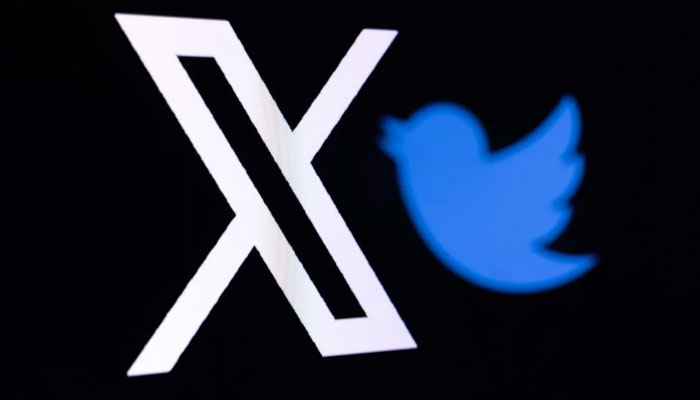Hide and seek
The Sindh High Court has now issued notices to the interior ministry and the PTA on two applications seeking contempt proceedings against them
It has now been over three weeks and full access to X (formerly Twitter) has yet to be fully restored in Pakistan. The country is no stranger to random internet outages and restrictions on access to social media platforms, but this latest ‘outage’ is rather unprecedented in its length with consistent access usually being restored after a few days in the outages of recent years. As of now, access is still fitful, with the platform sometimes accessible with a VPN, at different locations, or full access seemingly being restored only to be taken away again after a few hours. The latter was the case on the night of February 20-21, with users able to freely access the site at night but unable to do so the next morning. Some of us experienced the same at the time of writing this editorial – with no way to tell if access will sustain. Sadly, it would seem that even the digital realm is becoming like most other services in the country: unreliable. The internet was supposed to be a haven from these kinds of disruptions but as this outage continues to drag on, this is becoming less and less the case.
The Sindh High Court has now issued notices to the interior ministry and the PTA on two applications seeking contempt proceedings against them, noting that “if no legal justification or reasonable explanation whatsoever is given by the respondents for denying internet access to X/Twitter to the petitioners and public at large, inspite of court’s orders, the concerned respondents/alleged contemnors will expose themselves for initiation of contempt of court proceedings at their risk and consequences”. The “court’s orders” refers to a directive issued by the SHC on February 22 for access to X/Twitter to be restored, in response to a plea filed by multiple petitioners against the disruptions users have faced in accessing ‘X’ or Twitter, issued a directive for the authorities to restore access to the site. The PTA and the IT ministry, along with the state as a whole, are included as parties to the case in the aforementioned petition, which highlights that the PTA can only disrupt access to online content or information in a very narrow context and that such a widespread disruption is an unlawful violation of the people’s right to freedom of speech and expression and the right to receive information, guaranteed by Articles 19 and 19A of the constitution respectively. This past Tuesday (March 5), the Islamabad High Court also issued notices to the Ministry of Information and PTA regarding the closure of X in the country.
Many are no doubt wondering whether full access will ever be restored. However, even more infuriating than this arbitrary muzzling of the voices of an entire nation is that those with the power to make such decisions, principally the PTA, are yet to even bother with an explanation, unless one counts the caretaker information minister’s denial that the (former) caretaker government has anything to do with the shutdown. Does the constitutional right to free expression really count for so little in a self-proclaimed democracy? The sense of injustice is only heightened by the fact that this disruption follows a general election, an exercise in people-power. Social media is indispensable to people’s power in the 21st century. It is not just where people get the news, but where they can become part of it and influence the narrative. Then again, maybe that is the problem.
-
 Extreme Cold Warning Issued As Blizzard Hits Southern Ontario Including Toronto
Extreme Cold Warning Issued As Blizzard Hits Southern Ontario Including Toronto -
 Lana Del Rey Announces New Single Co-written With Husband Jeremy Dufrene
Lana Del Rey Announces New Single Co-written With Husband Jeremy Dufrene -
 Ukraine-Russia Talks Heat Up As Zelenskyy Warns Of US Pressure Before Elections
Ukraine-Russia Talks Heat Up As Zelenskyy Warns Of US Pressure Before Elections -
 Lil Nas X Spotted Buying Used Refrigerator After Backlash Over Nude Public Meltdown
Lil Nas X Spotted Buying Used Refrigerator After Backlash Over Nude Public Meltdown -
 Caleb McLaughlin Shares His Resume For This Major Role
Caleb McLaughlin Shares His Resume For This Major Role -
 King Charles Carries With ‘dignity’ As Andrew Lets Down
King Charles Carries With ‘dignity’ As Andrew Lets Down -
 Brooklyn Beckham Covers Up More Tattoos Linked To His Family Amid Rift
Brooklyn Beckham Covers Up More Tattoos Linked To His Family Amid Rift -
 Shamed Andrew Agreed To ‘go Quietly’ If King Protects Daughters
Shamed Andrew Agreed To ‘go Quietly’ If King Protects Daughters -
 Candace Cameron Bure Says She’s Supporting Lori Loughlin After Separation From Mossimo Giannulli
Candace Cameron Bure Says She’s Supporting Lori Loughlin After Separation From Mossimo Giannulli -
 Princess Beatrice, Eugenie Are ‘not Innocent’ In Epstein Drama
Princess Beatrice, Eugenie Are ‘not Innocent’ In Epstein Drama -
 Reese Witherspoon Goes 'boss' Mode On 'Legally Blonde' Prequel
Reese Witherspoon Goes 'boss' Mode On 'Legally Blonde' Prequel -
 Chris Hemsworth And Elsa Pataky Open Up About Raising Their Three Children In Australia
Chris Hemsworth And Elsa Pataky Open Up About Raising Their Three Children In Australia -
 Record Set Straight On King Charles’ Reason For Financially Supporting Andrew And Not Harry
Record Set Straight On King Charles’ Reason For Financially Supporting Andrew And Not Harry -
 Michael Douglas Breaks Silence On Jack Nicholson's Constant Teasing
Michael Douglas Breaks Silence On Jack Nicholson's Constant Teasing -
 How Prince Edward Was ‘bullied’ By Brother Andrew Mountbatten Windsor
How Prince Edward Was ‘bullied’ By Brother Andrew Mountbatten Windsor -
 'Kryptonite' Singer Brad Arnold Loses Battle With Cancer
'Kryptonite' Singer Brad Arnold Loses Battle With Cancer




